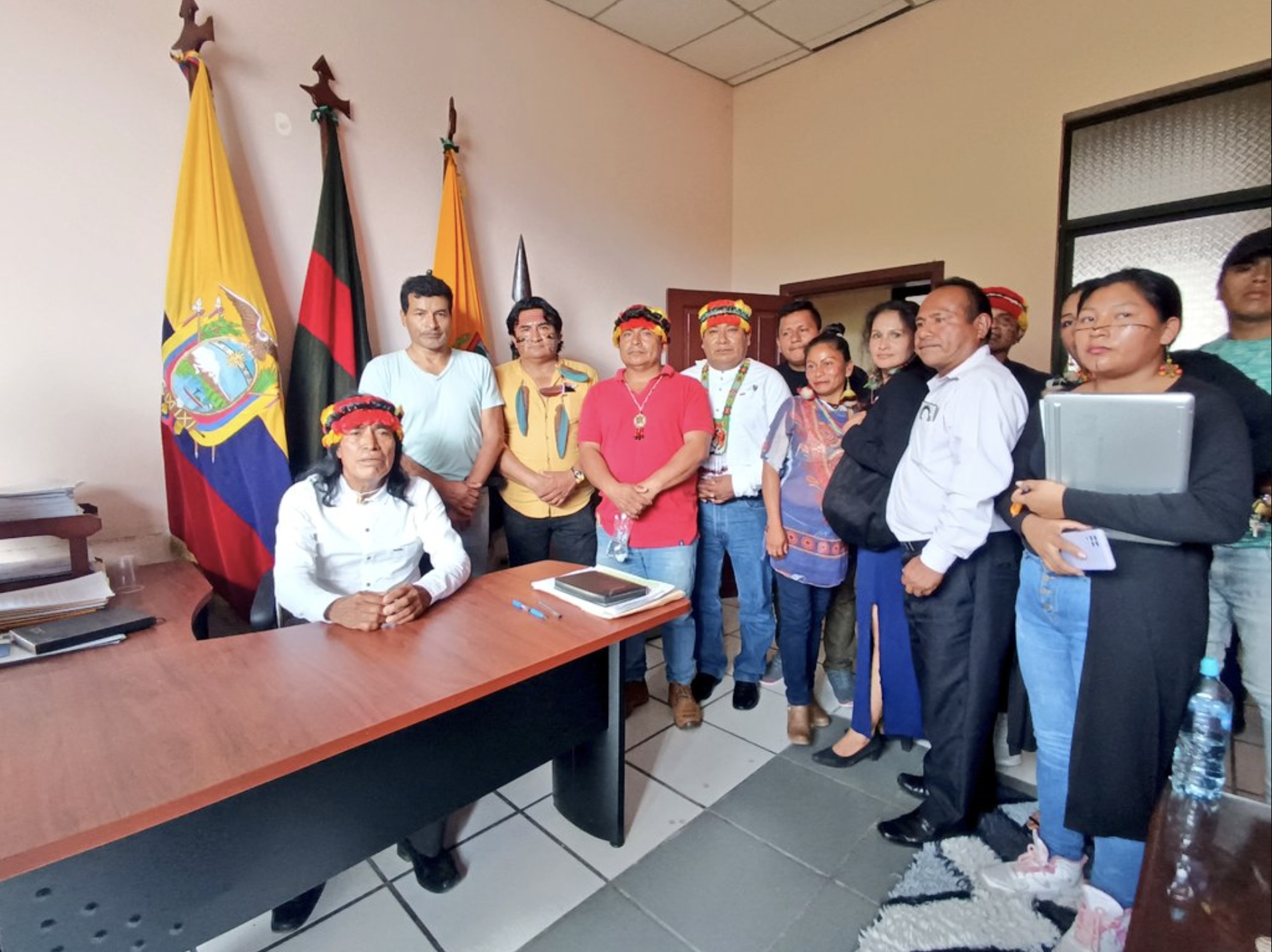Re: Conflicts caused by Canadian mining company Solaris Resources in the Ecuadorian Amazon
Dear Ambassador,
We, the undersigned nine organizations, are writing to you to express our deep concern about an escalation of violence and conflict associated with the Canadian mining company Solaris Resources Inc, who is attempting to advance its Warintza project in the collective and ancestral territory of the Shuar Arutam People, located in the province of Morona Santiago, in the Cordillera del Cóndor.
For the second time in less than a month, communities in Ecuador are facing severe repression and are victim to acts of violence in conflicts involving Canadian mining companies who are operating in their territories. The first instance was related to the operations of Atico Mining in Palo Quemado and Las Pampas. Now, conflict has intensified in relation to the Canadian company Solaris Resources, which is trying to advance a copper mining project in the Ecuadorian Amazon, in the territory of the Shuar Arutam People (PSHA) without their consent and in violation of their collective right to self-determination. It is worth noting that in March, the International Labour Organisation made a ruling in favour of the PSHA, finding that there was no free, prior, and informed consultation in the case of the Warintza and Panantza mining projects, contrary to internationally-recognized rights to consultation.
As reported by Mujeres Amazónicas Defensoras de la Vida, CONAIE, Frente Antiminero and the Alliance for Human Rights in Ecuador, among others, on April 12, several serious acts of intimidation, violence and confrontation took place at the headquarters of the Interprovincial Federation of Shuar Centres (FICSH) following the federation’s dismissal of the governing council and the appointment of a new president, Domingo Ankuash, during the March 30 and April 10 assemblies.
The former president of the FICSH, David Tankamash, was dismissed for not complying with the resolutions of the FICSH, which advised against mining in Shuar territory. More precisely, the president was dismissed for having gone to Toronto in March 2024 to participate in the annual mining convention sponsored by the Prospectors and Developers Association of Canada (PDAC). During the PDAC convention, Solaris announced it had signed an agreement with the FICSH to advance the project.
Supporters of the ousted FICSH leader were accused of forcibly breaking into the FICSH headquarters. During the violence, it was reported that several people were injured, among them Yutzu Maiche, an environmental defender and communications officer with Lanceros Digitales and Lluvia Comunicación.
On April 11, the new FICSH President Domingo Ankuash and other members of the elected governing council denounced Solaris Resources Inc. for provoking this situation of intimidation and threats against the new governing council.
Similarly, President of the Shuar Arutam People (PSHA) Jaime Palomino underscored that "the situation that occurred at the FICSH headquarters is a result of interference by the Lowell company [a subsidiary of Solaris Resources], for wanting to continue its mining activity in our territory. This is a call to the Canadian government to avoid these abuses and divisions among the Shuar families, communities, and associations that are in Morona Santiago.”
This "critical situation," as it has been described by CONAIE, is taking place within a larger context of conflict in Shuar territory caused by this Canadian mining company and at a moment when the governments of Canada and Ecuador are attempting to advance a free trade agreement. This proposed free trade agreement has been denounced strongly by both affected communities and civil society organizations in Ecuador and by organizations in Canada for potentially exacerbating environmental conflicts and human rights violations, intensifying the militarization of territories, and increasing the threats and intimidation against Indigenous leaders who speak out against Canadian mining projects.
We echo the call made in recent weeks by the Alliance for Human Rights in Ecuador to the Canadian government to uphold its international obligations to respect and protect human rights, collective rights, and the rights of nature – all of which are at serious risk from the activities of Canadian companies in Ecuador, and in this particular moment, the specific activities of Solaris Resources.
We urge the Canadian Embassy – which acts in representation of the Canadian government and must act in strict compliance with its extraterritorial obligations – to take the necessary measures to immediately address the abuse being carried out by Canadian companies in PSHA territory.
In line with actions outlined by Canada’s “Voices at Risk Guidelines,” we urge the Canadian Embassy to:
- Use its social media channels to publicly denounce this violence, in defense of the right to self-determination;
- Use its diplomatic channels to call for a full and impartial investigation into the acts of violence and confrontation outside FICSH headquarters, and inform the undersigned organizations of the results of said investigation;
- Withdraw its diplomatic support to Solaris Resources;
- Issue an official statement outlining what steps it will take to implement the recent recommendations made by the ILO in support of the Shuar Arutam People.
Signed by,
Shuar Arutam People
Witness
LluviaCommunicación
Alianza por Derechos Humanos del Ecuador
Amazon Watch
Amazon Frontlines
Red Territorios de Vida TICCA Latinoamérica
MiningWatch Canada
Centro de Documentación en Derechos Humanos “Segundo Montes Mozo S.J.” (CSMM)
